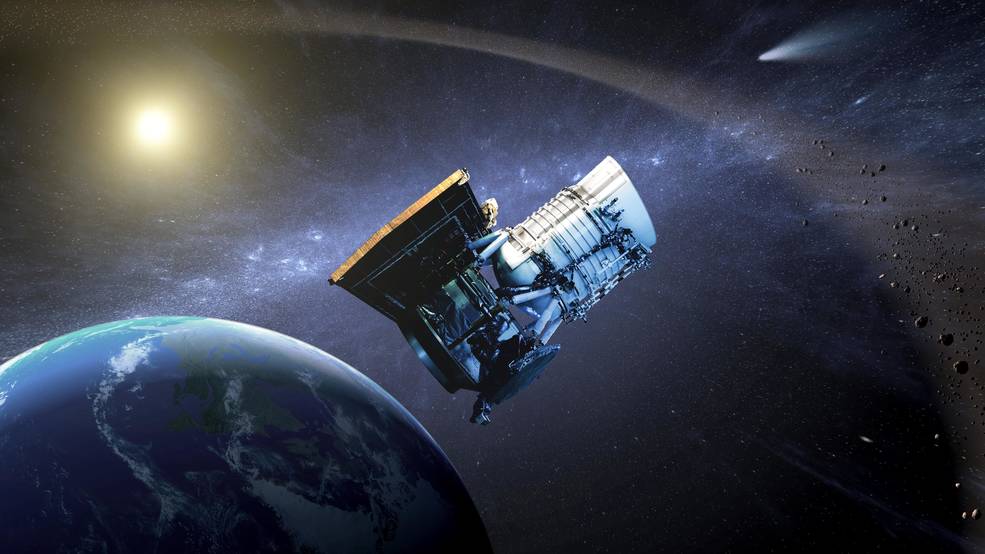BAE Systems is celebrating the successful completion of NASA’s Near-Earth Object Wide-field Infrared Survey Explorer (NEOWISE) mission today, which has officially ended after more than 14 years on orbit. On Aug. 8, the satellite was decommissioned after a command was sent from NASA’s Jet Propulsion Laboratory in Southern California, turning off its transmitter and putting it into hibernation. It will continue to drop toward Earth until it eventually safely burns up in the atmosphere in late 2024.
The satellite launched in 2009 as part of a NASA mission called WISE to map the sky using an infrared imager. After completing its survey in 2011, the satellite was placed into hibernation until 2013, when it was reactivated to take on a new mission called NEOWISE. Together, the WISE and NEOWISE missions have made a lasting impact, providing the scientific community with valuable data to track and study near-Earth objects throughout the solar system.
The satellite, which completed two all-sky surveys covering the sky over 23 times, identified tens of millions of supermassive black holes, catalogued thousands of near-Earth asteroids and comets, advanced planetary defense capabilities, and more. BAE Systems’ spacecraft was operated by NASA’s Jet Propulsion Laboratory to complete the WISE and NEOWISE missions, using an advanced imager provided by the Space Dynamics Laboratory.
“The WISE and NEOWISE missions exceeded all expectations and returned invaluable insights about our solar system,” said Dr. Alberto Conti, vice president and general manager of Civil Space for BAE Systems Space & Mission Systems. “The success of NEOWISE has also been integral to the development of NASA’s NEO Surveyor telescope, which will carry on the critical mission of defending our planet from dangerous objects in our solar system. Our team is excited to again be playing a key role in the upcoming mission.”
With the NEOWISE mission completed, stakeholders will now turn their attention to NASA’s Near-Earth Object (NEO) Surveyor mission, the first planetary defense satellite designed specifically to discover and characterize asteroids and comets larger than 460 feet (140 meters), which could pose a danger on Earth.
BAE Systems will supply the spacecraft for the NEO Surveyor mission, in addition to the sunshade system, deployable aperture cover, and a variety of cryogenic thermomechanical components for the instrument system. BAE Systems will also lead the assembly, integration, and testing of the observatory along with providing launch integration support.
NEO Surveyor is scheduled to launch in fall of 2027.










